8 Best Drinks for Weight Loss
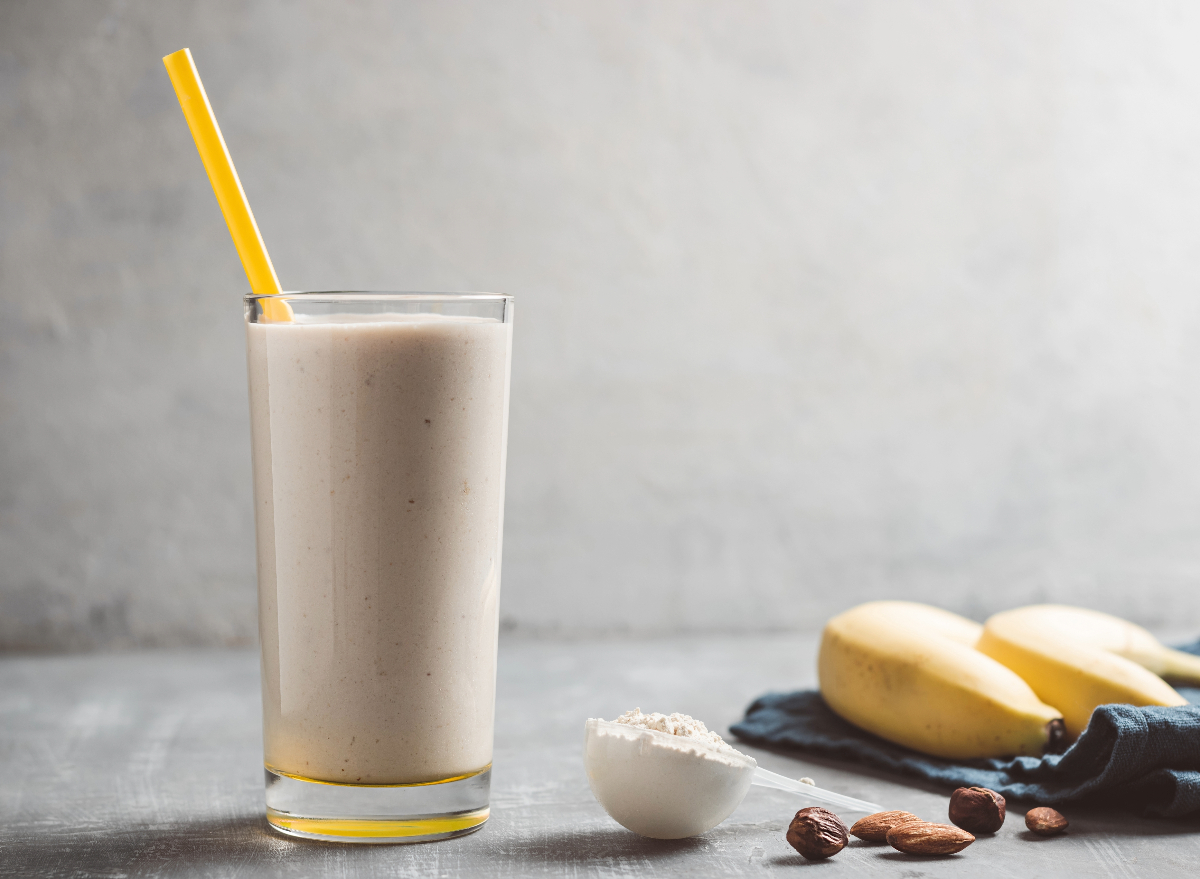
If you’re serious about losing weight, it’s important to consider everything you consume—including beverages. Water is always a great choice, but let’s be honest: Sometimes you’re looking for something a little more exciting. Fortunately, there are plenty of tasty drinks that support weight loss that you can enjoy throughout the day. We spoke with The Nutrition Twins®, Tammy Lakatos Shames, RD, CDN, CFT, and Lyssie Lakatos, RD, CDN, CFT, members of our Medical Expert Board, who share nine of the best weight loss drinks you’ll want to sip every day.
One of the biggest struggles individuals deal with when dieting is getting bored with their food and drink options, which is why having a solid variety at your fingertips can make all the difference. A key part of your weight loss journey should be planning, particularly when it comes to the items on your grocery shopping list. Adding the ingredients in these awesome weight loss drinks to your arsenal—and shopping list—will make losing weight tastier and easier. So read on, and drink up! And next, check out our story on the 10 Best Superfood Snacks to Strip Away Belly Fat.
Green Juice with Pulp
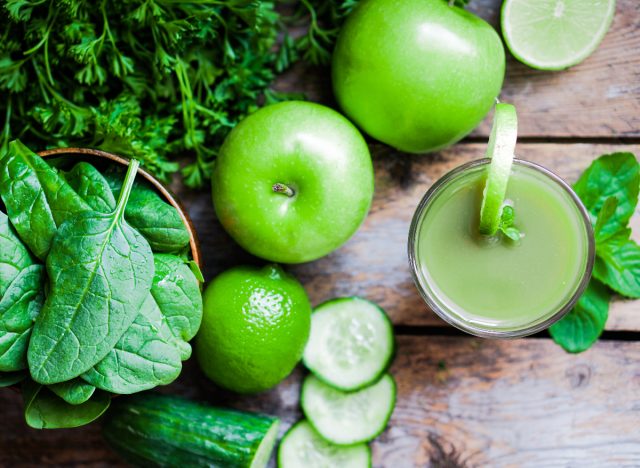
Green veggie juice with pulp is chock-full of nutrients. Consider cabbage, celery, kale, or spinach. “As long as you keep the pulp, you’re drinking a juice that’s low in calories and sugar and that retains the fiber that keeps hunger at bay,” The Nutrition Twins tell us.
When it comes to weight loss, the more veggies and fruits you consume, the better off you will be. In fact, research shows that eating veggies plays a key role in managing weight for individuals genetically prone to a higher BMI or weight gain.
“Green vegetables are also a great source of potent antioxidants which help to tame inflammation, which is especially important when it comes to weight loss since inflammation makes weight loss more difficult,” The Nutrition Twins add.
Gut-Friendly Drinks
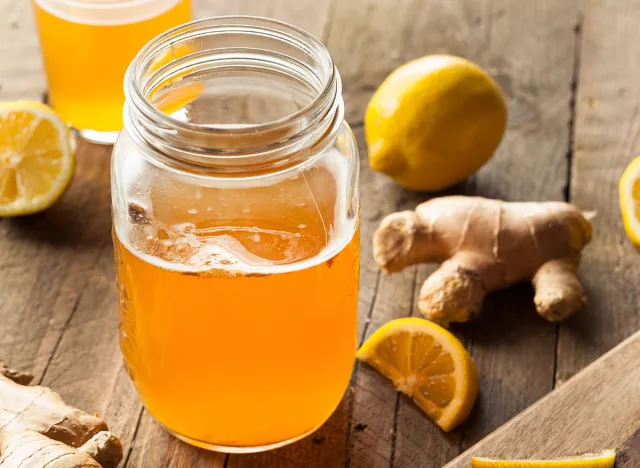
A happy gut is a healthy gut, so it should come as no surprise that one of the best weight loss drinks is a gut-friendly drink.
“The microbiome is a major player when it comes to weight loss,” The Nutrition Twins tell us. “Increasing the good bacteria in the gut will help to crowd out the bad bacteria, favoring weight loss and positively favoring metabolism. Often people think about getting probiotics to improve gut health, but they overlook prebiotic fiber, the fiber that is necessary to feed and nourish probiotics. Since most Americans don’t get enough prebiotic fiber, getting prebiotics in a delicious drink can move the needle.”
Pea Protein Smoothie
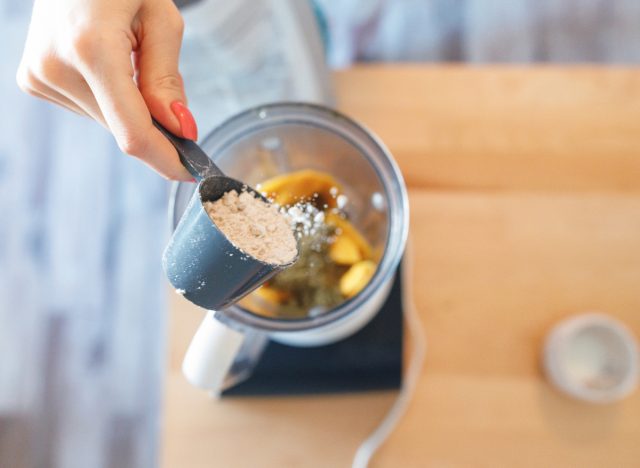
In the mood for a smoothie? Add pea protein to your smoothie to make it a weight-loss-friendly choice. Pea protein offers plenty of fiber and protein, which will keep you feeling full and avoid snacking long after you consume it.
“The protein/fiber combination also stabilizes blood sugar, preventing crashes that trigger sugar cravings and send belly fat-triggering cortisol surging,” The Nutrition Twins point out. “Additionally, research shows that pea protein can aid in weight loss even when calories aren’t restricted. Pea protein is also beneficial when it comes to keeping your metabolism moving since it’s a good source of the branched-chain amino acids, which are critical for building metabolism-boosting lean tissue. In fact, pea protein has been shown to build muscle just as well as popular dairy-based protein powders.”
Green Tea
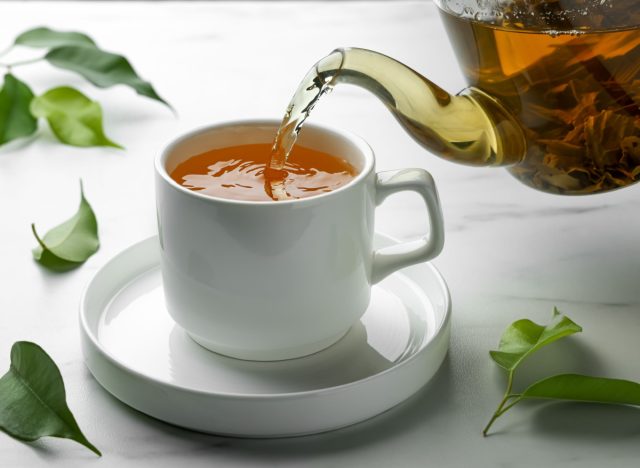
If you’re a tea lover, you’re going to love this recommendation. Green tea is filled with antioxidants, which are great when it comes to fighting chronic inflammation that’s directly linked to obesity. It also doesn’t come with any calories.
“It’s rich in the antioxidant epigallocatechin gallate (EGCG) which research shows can enhance fat burning and increase metabolism,” The Nutrition Twins say. “A 12-week study found that concentrated green tea, using the active ingredients of green tea (catechins and caffeine), caused a 7.7-pound weight loss in those that had the green tea compared to those who didn’t have the green tea.” Needless to say, keep your green tea cup filled throughout the day!
Raspberry Ginger Lime All-Natural DIY Soda
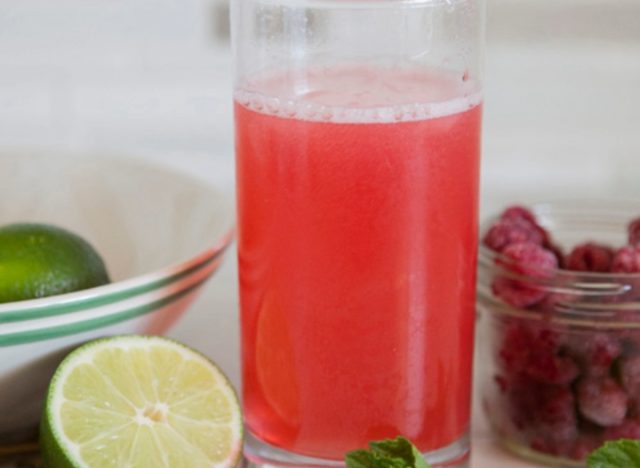
Unfortunately, many popular sodas are not conducive to weight loss, as they’re packed with sugar and calories; even the zero-calorie diet options can harm your progress. In contrast, The Nutrition Twins’ DIY all-natural soda is a refreshing treat that only has 30 calories per 12 ounces. Ingredients like lime, ginger, and mint offer anti-inflammatory properties that fight inflammation and make losing weight more manageable.
“The phytochemical C3G in the raspberries increases the production of two of the body’s hormones: adiponectin to enhance metabolism and leptin to suppress appetite—a major win for anyone trying to lose weight,” The Nutrition Twins point out. “Raspberries have also been shown to decrease the obesity-related inflammation, to help make weight loss easier.”
Spicy Metabolism Booster
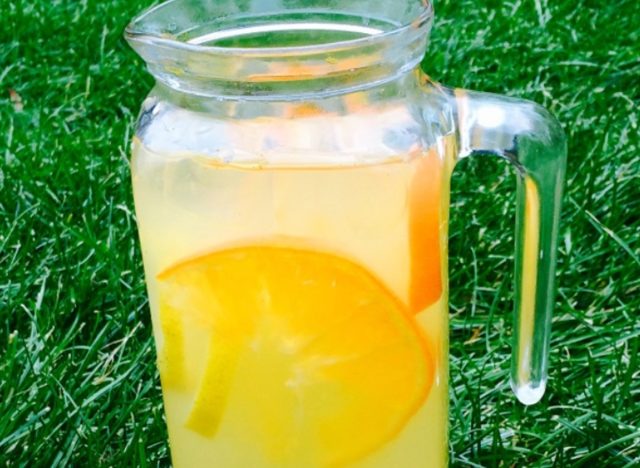
Spice things up—literally!—with The Nutrition Twins’ anti-inflammatory, five-calorie drink, which offers plenty of weight loss benefits. According to The Twins, “It contains cayenne pepper, which studies show may suppress appetite and help you to feel full, thanks to capsaicin, the component in the cayenne that creates the hot and spicy taste. Capsaicin also has been shown to help promote a slight increase in metabolism. Sipping this slightly bitter and spicy drink before a sweet treat helps you appreciate the sweetness of that treat, and can retrain your tastebuds so that less-sweet foods are more satisfying. What’s better for weight loss than enjoying smaller portions of less sugary foods without going overboard?”
Coffee
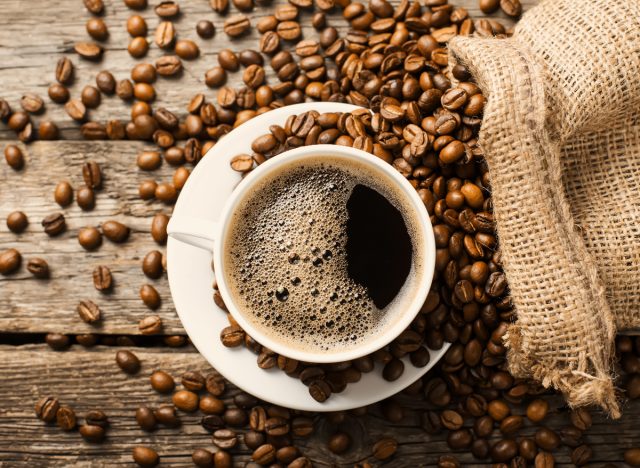
Sipping your cup of joe without milk or sugar is an excellent calorie-free way to get your fill of caffeine and boost your weight loss efforts. Research shows that coffee can help you lose weight thanks to its metabolism-boosting and fat-burning properties.
“Coffee is also rich in chlorogenic, ferulic, caffeic, and n-Coumaric acids, which are powerful antioxidants that tame inflammation, making it easier to lose weight,” The Nutrition Twins say. “Coffee can also be beneficial for people who are intermittent fasting who skip breakfast in the morning and use coffee to help take the edge off hunger. Just beware that if you don’t drink your coffee black or add sugar, it will add calories to your coffee, and if you’re intermittent fasting and drinking coffee during your fast, it may break the fast.”
Water With a Pinch of Celtic Salt
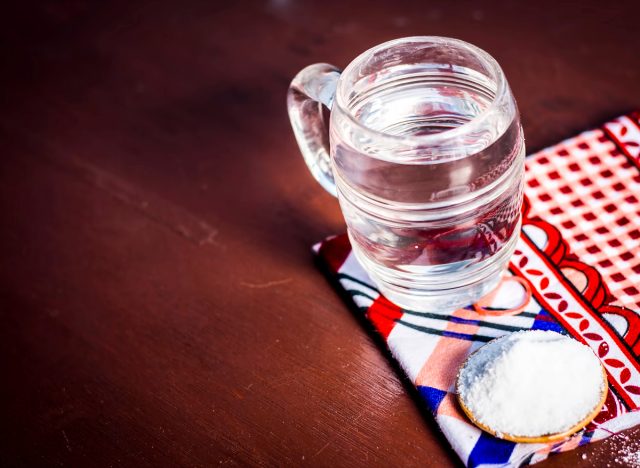
Good old H2O may not be the most mouthwatering option on this list, but it’s a key player in weight loss. “Your body is 60% water, and water is needed in every body process, including having an efficient and speedy metabolism,” The Nutrition Twins explain. “Water also acts as an appetite suppressant.”
If you drink water for hydration purposes outside your meals and find yourself urinating frequently or are still experiencing dehydration, consider adding a pinch of Celtic salt to your water. “[Celtic salt] contains important minerals and electrolytes that help to bring water into the cells so that it can fuel the mitochondria and spark your energy, supporting muscles and brain function,” The Nutrition Twins say. “This equals better workouts and greater cognition and less susceptibility to urges to boost energy through sugar.” We’ve also got some tips to help you drink more water, and if salt isn’t cutting it, you might also want to try these detox waters.









